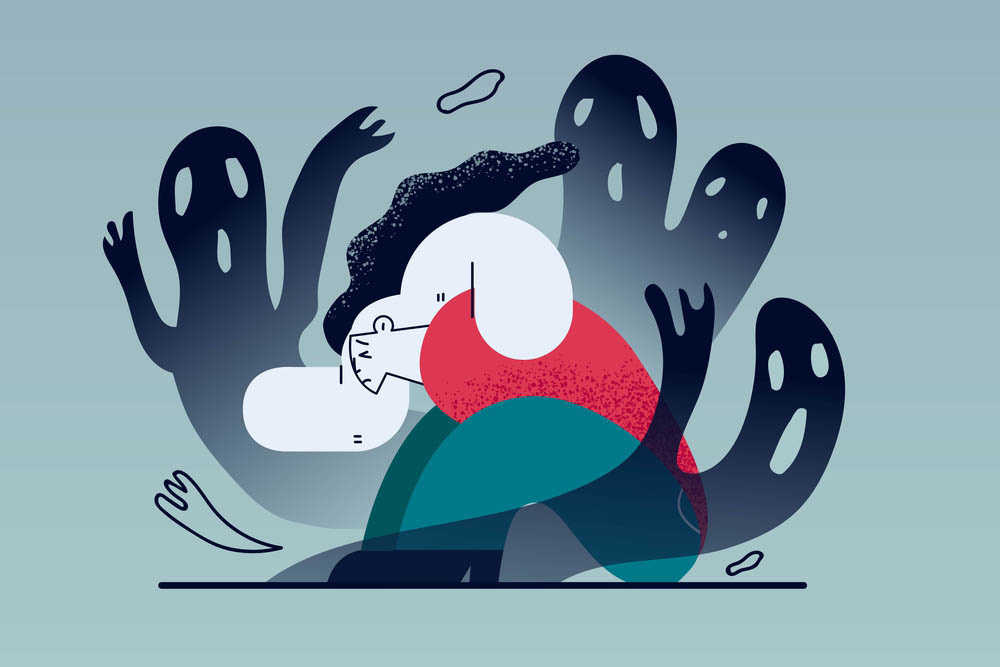In a new study, researchers found that those exposed to SSRI antidepressants in utero had a hyperactive amygdala and were more fearful and depressed as adolescents. This was true in both mice and humans. Maternal depression did not explain the effect.
“In mice and humans, early-life SSRI exposure alters the offspring’s brain structure and is associated with anxiety and depression-related behaviors beginning in puberty,” the researchers write.
The researchers found that mice exposed to SSRIs in utero had stronger responses to predator odor, and their amygdalae and fear circuits were more activated. Likewise, human adolescents exposed to SSRIs in utero had worse anxiety and depression, and also had hyperactive amygdalae and limbic systems.
The reason the researchers tested both mice and humans was to better assess causality. Research in mice is not confounded by the same factors as study in humans (eg, maternal depression, sociodemographic factors). Thus, since the humans exhibited the same responses as the rodents (e.g., hyperactive amygdalae and fear responses), the researchers conclude that their findings reflect the same causal pathways.
“Mouse to human translation is hardly ever one to one. Yet, parallel translation to humans shows that our findings are clinically relevant and ethologically valid,” they write.
The study was led by Giulia Zanni and Milenna T. van Dijk at Columbia University, New York, and published in Nature Communications.
They write that SSRI exposure in utero “leads to an exacerbated functional response to an innate fear stimulus across neural circuits involved in fear, arousal, and emotional regulation.”
















This, possibly… Could this also be an explanation for the ‘hereditary’ transmission of mental illnesses from generation to generation? In my opinion, yes.. Psychiatry will probably use this feature of psychiatric drugs by saying that ‘mental illnesses are hereditary’ and getting people to use toxic psychiatric drugs. And you can be sure that it has been doing this for decades.
-How many people die and are disabled by psychiatric drugs?
-How many people die and are disabled by psychiatric treatments?
-How many people does psychiatry kill and disable each year?
I think it looks like humanity will wake up one day and psychiatry will be put on trial for ‘genocide.’ I feel like that’s very close. Best regards.
With my best wishes. Y.E. 🙂 (Researcher blog writer (Blogger))
Report comment
This virtually proves harm to baby by administering these drugs to pregnant women.
Wish this was enough to ban these drugs. It should be.
Report comment
Whoops! I guess this is a good plan if you want another generation of customers, eh?
Report comment
Dear Peter,
Before my awakening to the realities of psychiatric treatment, I received guidance from several physicians at the Top End Medical Centre in Darwin, who recommended the continued use of selective serotonin reuptake inhibitors (SSRIs) during my pregnancies. They cautioned that discontinuing the drugs could precipitate a worsening of my diagnosed ‘condition’, potentially jeopardising the developmental health of my children.
Following their recommendations, both of my children were inaccurately diagnosed with the ostensibly nebulous condition of “Autism Spectrum Disorder.” A more plausible characterisation of their symptoms may reflect “reduced motivation, heightened anxiety-like behaviours, impaired fear extinction, and increased depressive-like behaviours,” similar to those exhibited in certain rodent and human models exposed to SSRIs. The ramifications of psychiatric treatment have not only cost me twenty-two years of my life and resulted in lasting disability, but they have also inadvertently inflicted harm on my children. F@ck psychiatry, and f@ck medicine!
Thank you for your article illuminating the dangers of ignorant ‘professionals’.
Kind regards,
Cat
Report comment
This is similar to what happens with early life stress/trauma no? Very interesting that they both can have this effect. My very inexpert understanding gleaned mostly from reading Robert Sapolsky is that the ongoing vigilance required to survive in a threatening environment develops the amygdala at a very quick rate leaving the rest of the brain underdeveloped, and the development of the frontal cortex which requires a regulated emotional state basically doesn’t happen. It’s interesting that this looks so similar. Maybe the child in utero has some experience of the ssri as invasive or threatening.
Report comment